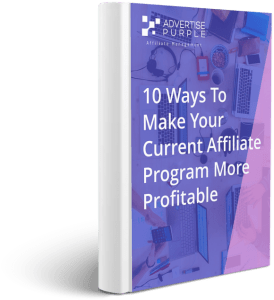
Share
Getting right to the point – no, no it is not. Operating an affiliate management agency, we can’t even tell you the number of clients that come to us wanting to recruit a super diverse affiliate program and proceed to only talk about how they want to work with this and that influencer and we’re left waiting for them to finish describing their ideal PR list until we can tell them we have a lot more to offer. With the rise of social commerce and proliferation of fame through these platforms, influencers are what’s hot and trending but they only account for a fraction of the value in the affiliate channel. While influencers are a great means for brands to penetrate a receptive audience, we’re going to educate you on the difference between strictly marketing with influencers vs a holistic approach with affiliate marketing.
Affiliate vs Influencer defined
Affiliate marketing is a performance-based model where affiliates earn commissions for driving conversions. Affiliates can be anything from content creators and news publishers, to shopping and loyalty sites, review and comparison sites, PPC, and so much more. They’ll promote your products and use links or codes to associate attribution of the sale so you can pay them their commission. Influencer marketing involves working with creators with large followings to target niche audiences of relevant consumers. Depending on the influencer’s follower count and engagement rate, you might pay them any combination of free product, commission, and/or a flat fee for their endorsement.
Logistics of the relationship
Affiliate partnerships are strictly business – you’re paying for performance. While affiliates educate themselves on the brand and their products, being an affiliate is their job and their personal goal is to generate conversions to maximize their earnings. Working directly with influencers, you typically have a more personal relationship. The influencer becomes a “face” for your brand and represents your values and interests. In order for the promotion to come off as authentic to their audience, influencers are typically more selective with the brands they work with than larger affiliate publishers.
Ability to target effectively
Naturally, an influencer’s reach is pretty much limited to their followers. Depending on how dedicated their fanbase is, you might get some additional exposure through reposts and engagement encouraging Instagram to promote the post to similar audiences on their explore pages. With influencer marketing you’re also restricted in targeting. You can search for influencers whose followers are mostly a part of your target audience, but you can’t get as specific as you can with affiliate marketing. Affiliate marketing thrives off leveraging data insights to take a targeted and strategic approach. With affiliates you can cater to your target demographic, their interests and behaviors and cater your messaging based on the user and their preferences. You can also target shoppers based on what stage of the purchase decision they’re in. If you’re focused on getting conversions, you’ll likely want to work with loyalty and reward sites which target ready-to-buy shoppers.
Control over the creatives
In both cases you’ll relinquish a level of control in terms of how your product is conveyed and communicated. Both influencers and affiliates will take your messaging and branding elements into account in their creative in order to provide their users with accurate product benefits and claims. However, they have the ultimate decision on how to present your product to their audience. You might have a say in the type of content whether that’s specifying an influencer has to post a video vs a story or whether it’s choosing a review site vs a loyalty site as an affiliate, but the final message is crafted and put out by them. Some influencers and affiliates will give you more visibility into their process and the content while others like to keep to themselves. That’s why it’s important to ask what their work flow is like before signing any contracts!
Long story short – both affiliate marketing and influencer marketing offer unique benefits. Affiliate marketing gives you a wider reach, a performance-based compensation model, and enables a diversified approach to promote your brand’s products. On the other hand, influencer marketing allows you to penetrate targeted audiences with authentic endorsements to leverage the trust of the creators’ followers. When deciding between affiliate marketing and influencer marketing, consider your goals, target audience, product type, and budget. In a lot of cases a combination of both strategies can yield optimal results. By understanding the differences and benefits of each approach, businesses can make informed decisions and build effective marketing campaigns that drive make an effective use of their budget to maximize their returns.




